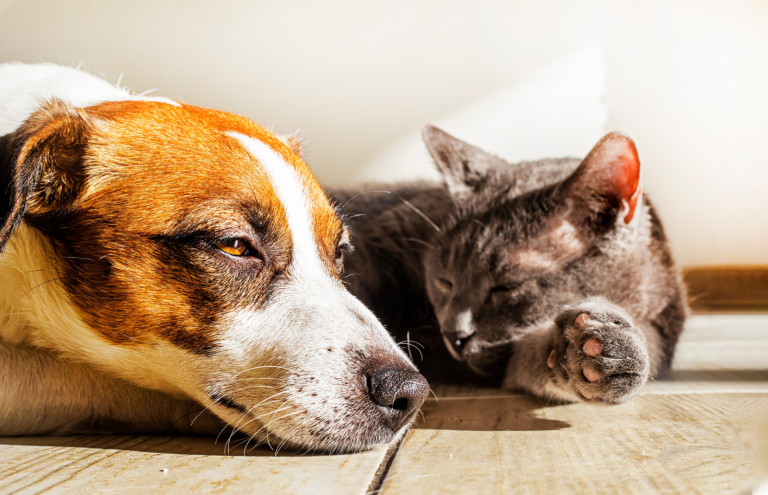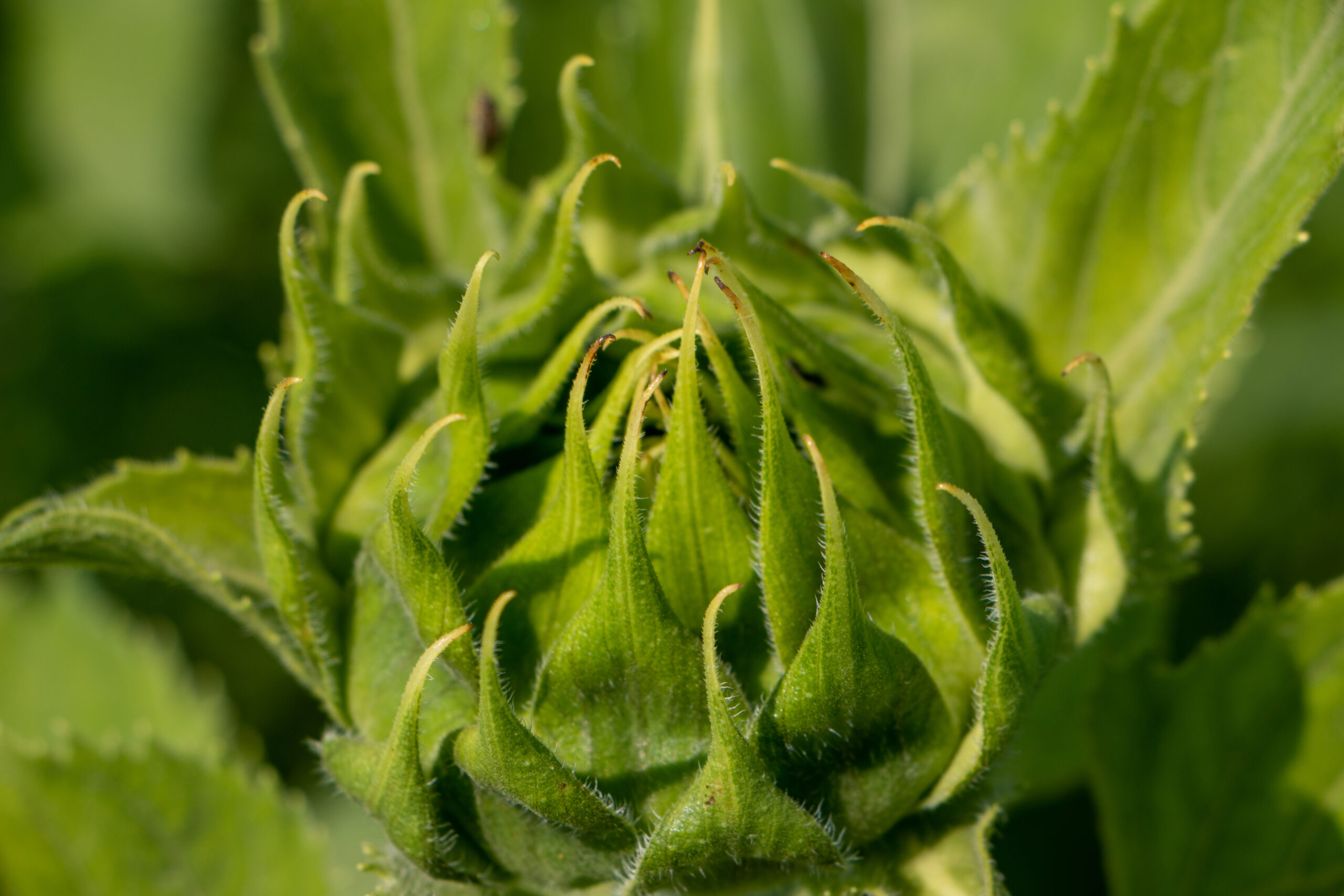Emotional Health in Pets: Relieving Stress and Anxiety
Emotional Health in Pets: Relieving Stress and Anxiety
Animals may experience emotional health problems similarly to how a human may struggle with stress or anxiety. Pets’ emotional health may present in different ways; after all, they can’t communicate directly to their owners about what’s going on in their heads! Understanding what emotional health looks like in pets as well as what nutritional strategies may support pets’ emotional health, however, can help pet parents support their pets throughout their lives.
Defining Emotional Health Problems for Pets
Stress is broadly defined as conditions where an environmental demand exceeds the natural regulatory capacity of an organism. This may occur in situations characterized by unpredictability and uncontrollability. Stressors are unpredictable stimuli that result from a loss of control or that lead to a disruption of homeostasis (a balanced state). Homeostasis is a self-regulating process by which biological systems maintain stability while adjusting to changing external conditions.1,2 Anxiety, on the other hand, results from a complex interaction of environment, conditioning (prior exposures), genetics, and neurologic adaptation that occurs over time.3 Anxiety or fear may be appropriate in some cases; however, repeated overreactions to harmless situations indicates a failure to habituate to normal stimuli.4
What Types of Stress Do Pets Experience?
Pets can have physiological stress such as that experienced when dealing with trauma, veterinary treatments or surgeries, or when experiencing a disease condition. They can also experience stress stemming from a psychological origin rather than physical one (referred to as psychogenic stress) which may result from social causes such as introduction to new people or environments. Pets also experience physiological stress from nonsocial causes such as exposure to noise, altered light/dark balance, smells, and cage or crate confinement either at home or in a veterinary hospital or boarding facility. A compromise in normal mobility can also be a source of chronic stress for pets due to pain or simply lack of movement.
Some of the stressors pets experience can be reduced through modifying their environment by limiting noise, avoiding routine disruption, facilitating calm handling, and supporting mobility. It is important to note, though, that some stress is unavoidable in veterinary care such as when using restraint needed for veterinary procedures or treatments.3
What Type of Anxiety Do Pets Experience?
Anxiety is similar to psychogenic stress. It is often described as apprehension related to a future situation, and it is not related to a specific threatening object. Anxiety can result from prior negative experiences. Recognized disorders of anxiety in pets include separation anxiety and noise phobias.6
| Signs of Anxiety or Stress in Pets7,8 | Physical Manifestations of Stress and Anxiety4 |
| Drooling | Pacing |
| Stress-related anorexia | Panting |
| Stress-related elimination | Yawning |
| House soiling | Lip-licking |
| Excessive licking or scratching | Averted gaze |
| Pawing (attention-seeking) | Vocalizing (barking or whining) |
| Escape attempts (fleeing crate) | Avoidance |
| Nighttime waking | Hiding |
| Destruction | Increased activity |
| Rigid, motionless posture |
Stress Regulation in the Body
Physiological responses to stress are regulated through either rapid or slow mechanisms. The sympatho-adreno-medullary axis (SAM) manages immediate responses to stress through the release of catecholamines from adrenergic nerves of the adrenal medulla. This response occurs within seconds of a stimulus. The hypothalamic-pituitary-adrenal axis (HPA) alternatively releases hormones from the hypothalamus which causes release of corticotrophin-releasing hormone that will stimulate the posterior pituitary to release ACTH. ACTH enters the blood and acts on the zona fasciculata of the adrenal cortex to release glucocorticoids (cortisol). This slower response may occur over hours, days, or weeks.
Other hormones in the body that are involved in stress regulation include dopamine, oxytocin, endogenous opiates, and endocannabinoids.3,6 The body may habituate to a stressor, with the magnitude of the response declining over time. Alternatively, the body may become sensitized – which could result in a heightened response to that stressful stimulus. Excessive heightened responses to stressors will result in pathology or disease states over time.9
Disease states in pets related to stress and anxiety include:
- Immune suppression; increased susceptibility to infections10-12
- Gastrointestinal disease13, 14
- Cutaneous disease15
- Delayed wound healing16, 17
- Alterations in pain perception18
Minimizing Risk and Treating Stress and Anxiety in Pets
Efforts to reduce stress and anxiety in pets may include non-pharmacologic methods such as altering the environment to provide privacy or hiding areas, calming music, protecting normal routines and sleep, or providing supplemental natural pheromones. Pharmacologic interventions may include drugs or supplements aimed to modify stress responses or reduce anxiety levels. Nutrient support through diet or supplementation is an intervention that can support the body’s stress regulatory mechanisms and help it naturally manage stress.
Supplements and Functional Ingredients for Stress and Anxiety in Pets
Supplements and functional foods may serve to influence regulation of stress and anxiety in the body. Some examples include:19, 20
- Alpha-lactalbumin: bovine milk derivative; source of tryptophan
- Apoaequorin: is a calcium-binding protein; reduces calcium related neuronal cell death
- L-Theanine: AA found in tea plants; increase GABA, serotonin
- Medium chain triglycerides: fuel source for brain; refractory seizures
- Docosahexaenoic acid (omega-3 fish oil): development of neural and retinal tissues
- S-Adenosylmethionine: methyl donor, antioxidant; synthesis and inactivation of neurotransmitters
- L-carnitine: fatty acid metabolism; improves mitochondrial cell functions
- α-Casozepine: structurally similar to γ-aminobutyric acid; an amino acid that functions as an inhibitory (calming) neurotransmitter in the brain.
Nutrient Support for Stress and Anxiety in Pets
Providing key nutrients may ensure all building blocks are present for important metabolic pathways involved in stress and anxiety management. Some key nutrients and active ingredients found in supplements include:
- Phytocannabinoids: support homeostasis or balance, supply a source of omega-3 and omega-6 fatty acids19
- Probiotics/Prebiotics: modulate physiological systems, including gastrointestinal function, immunity, and metabolism20
- Glandular tissues: support homeostatic mechanisms for many glands in the body including the adrenal, pituitary, and pineal gland, brain nervous tissues, gut, and brain-gut axis; provide a source of peptides, enzymes, lipids, steroids, and low dose hormones21
- Vitamins: niacin, pyridoxine, folate, thiamine, and cobalamin22
- Minerals: magnesium, calcium, potassium, selenium, zinc, copper, and manganese23-26
- Melatonin: Epicenter of circadian rhythms, synchronization of biological rhythms, anti-inflammatory, neuroprotective, and anti-nociceptive27, 28
Managing Stress in Pets: A Multi-modal Approach
Reducing stress in pets should include evaluation of the pet’s general health status, environment, routine, exercise, and nutrition, including all foods and supplements. Veterinary input should be sought to review the pet’s lifestyle, routine, current disease conditions, medications, diet, and supplements. Reduction in stress and anxiety can be achieved by utilizing multiple different interventional modalities. Optimizing the pet’s environment and nutrition with a high-quality diet and nutrient support through supplements may help ensure that all key metabolites are present when needed, as well as promote and maintain a normal, healthy stress response.
- Billman GE. Homeostasis: The Underappreciated and Far Too Often Ignored Central Organizing Principle of Physiology. Front Physiol. 2020 Mar 10;11:200. doi: 10.3389/fphys.2020.00200. PMID: 32210840; PMCID: PMC7076167.
- Galluzzi L, Yamazaki T, Kroemer G. Linking cellular stress responses to systemic homeostasis. Nat Rev Mol Cell Biol. 2018 Nov;19(11):731-745. doi: 10.1038/s41580-018-0068-0. PMID: 30305710.
- Lefman SH, Prittie JE. Psychogenic stress in hospitalized veterinary patients: Causation, implications, and therapies. J Vet Emerg Crit Care (San Antonio). 2019 Mar;29(2):107-120. doi: 10.1111/vec.12821. Epub 2019 Mar 12. PMID: 30861632.
- Deporter, Theresa. The Fearful, Anixous, & Worried Pet. In: Clinical Notes, Clinician’s Brief.com
- Nov 2015 https://www.cliniciansbrief.com/article/fearful-anxious-worried-pet. Last accessed 3.9.21
- Overall KL. Manual of Clinical Behavioral Medicine for Dogs and Cats. 1st St. Louis, MO: Elsevier; 2013.
- Radosta L, Palestrini C. Fears, phobias, and anxieties— dogs. Situational sensitivities. In: BSAVA Manual of Canine and Feline Behavioural Medicine, 2nd ed. Quedgeley, Gloucester: British Small Animal Veterinary Association, pp 169-181, 2009.
- Landsberg GM, Blizzard P, De Rivera C. Prevalence of fearful and anxious behaviours in dogs in the United States. Proc ACVB/AVSAB Vet Behav Symp, Chicago, IL. pp 50–51, 2013
- Koolhaas JM, Bartolomucci A, Buwalda B, de Boer SF, Flügge G, Korte SM, Meerlo P, Murison R, Olivier B, Palanza P, Richter-Levin G, Sgoifo A, Steimer T, Stiedl O, van Dijk G, Wöhr M, Fuchs E. Stress revisited: a critical evaluation of the stress concept. Neurosci Biobehav Rev. 2011 Apr;35(5):1291-301. doi: 10.1016/j.neubiorev.2011.02.003. Epub 2011 Feb 21. PMID: 21316391.
- Hekman JP, Karas AZ, Sharp CR. Psychogenic Stress in Hospitalized Dogs: Cross Species Comparisons, Implications for Health Care, and the Challenges of Evaluation. Animals (Basel). 2014 Jun 16;4(2):331-47. doi: 10.3390/ani4020331. PMID: 25126422; PMCID: PMC4128501.
- Segerstrom SC, Miller GE. Psychological stress and the human immune system: a meta-analytic study of 30 years of inquiry. Psychol Bull. 2004 Jul;130(4):601-30. doi: 10.1037/0033-2909.130.4.601. PMID: 15250815; PMCID: PMC1361287.
- Tanaka A, Wagner DC, Kass PH, Hurley KF. Associations among weight loss, stress, and upper respiratory tract infection in shelter cats. J Am Vet Med Assoc. 2012 Mar 1;240(5):570-6. doi: 10.2460/javma.240.5.570. PMID: 22332626.
- Bailey MT. Psychological Stress, Immunity, and the Effects on Indigenous Microflora. Adv Exp Med Biol. 2016;874:225-46. doi: 10.1007/978-3-319-20215-0_11. PMID: 26589222.
- Konturek PC, Brzozowski T, Konturek SJ. Stress and the gut: pathophysiology, clinical consequences, diagnostic approaches, and treatment options. J Physiol Pharmacol2011;62(6):591-599.
- Brzozowski B, Mazur-Bialy A, Pajdo R, Kwiecien S, Bilski J, Zwolinska-Wcislo M, Mach T, Brzozowski T. Mechanisms by which Stress Affects the Experimental and Clinical Inflammatory Bowel Disease (IBD): Role of Brain-Gut Axis. Curr Neuropharmacol. 2016;14(8):892-900. doi: 10.2174/1570159×14666160404124127. PMID: 27040468; PMCID: PMC5333596.
- Holmes CJ, Plichta JK, Gamelli RL, Radek KA. Dynamic Role of Host Stress Responses in Modulating the Cutaneous Microbiome: Implications for Wound Healing and Infection. Adv Wound Care (New Rochelle). 2015 Jan 1;4(1):24-37. doi: 10.1089/wound.2014.0546. PMID: 25566412; PMCID: PMC4281854.
- Sivamani RK, Pullar CE, Manabat-Hidalgo CG, Rocke DM, Carlsen RC, Greenhalgh DG, Isseroff RR. Stress-mediated increases in systemic and local epinephrine impair skin wound healing: potential new indication for beta blockers. PLoS Med. 2009 Jan 13;6(1):e12. doi: 10.1371/journal.pmed.1000012. PMID: 19143471; PMCID: PMC2621262.
- Ahmad AH, Zakaria R. Pain in Times of Stress. Malays J Med Sci. 2015 Dec;22(Spec Issue):52-61. PMID: 27006638; PMCID: PMC4795524.
- Orlando, JM. Behavioral Nutraceuticals and Diet; Vet Clin Small Anim 48; 2018
- Beata C, Beaumont-Graff E, Diaz C, et al. Effects of alpha-casozepine (Zylkene) versus selegiline hydrochloride (Selgian, Anipryl) on anxiety disorders in dogs. J Vet Behav2007;2(5):175-183.
- The Endocannabinoid System of Animals. Silver RJ. Animals (Basel). 2019 Sep 16;9(9):686.
- Strandwitz, Philip. “Neurotransmitter modulation by the gut microbiota.” Brain research 1693,Pt B (2018): 128-133.
- Schoen AM WS. Complementary and Alternative Veterinary Medicine. Mosby; 1998. p. 81-91.
- Lim, S., Kim, E., Kim, A., Lee, H., Choi, H., & Yang, S. (2016). Nutritional factors affecting mental health. Clinical nutrition research., 5(3), 143–52.
- Boyle NB, Lawton C, Dye L. The Effects of Magnesium Supplementation on Subjective Anxiety and Stress-A Systematic Review. Nutrients. 2017 Apr 26;9(5):429.
- Bateman SW. A Quick Reference on Magnesium. Vet Clin North Am Small Anim Pract. 2017 Mar;47(2):235-239. doi: 10.1016/j.cvsm.2016.09.002. Epub 2016 Dec 8. PMID: 27939858.
- Diquélou A, Chaput C, Benoit E, Priymenko N. Hypocalcaemia due to nutritional calcium deficiency and hypoparathyroidism in an adult dog. Vet Rec. 2005 Jan 8;156(2):45-8.
- Alkhatatbeh MJ, Abdul-Razzak KK, Khwaileh HN. Poor sleep quality among young adults: The role of anxiety, depression, musculoskeletal pain, and low dietary calcium intake. Perspect Psychiatr Care. 2021 Jan;57(1):117-128.
- Hansen MV, Halladin NL, Rosenberg J, Gögenur I, Møller AM. Melatonin for pre- and postoperative anxiety in adults. Cochrane Database Syst Rev. 2015 Apr 9;2015(4):CD009861. doi: 10.1002/14651858.CD009861.pub2. Update in: Cochrane Database Syst Rev. 2020 Dec 8;12:CD009861. PMID: 25856551; PMCID: PMC6464333.
- Nie L, Wei G, Peng S, Qu Z, Yang Y, Yang Q, Huang X, Liu J, Zhuang Z, Yang X. Melatonin ameliorates anxiety and depression-like behaviors and modulates proteomic changes in triple transgenic mice of Alzheimer’s disease. Biofactors. 2017 Jul 8;43(4):593-611. doi: 10.1002/biof.1369. Epub 2017 Jun 13. PMID: 28608594.







